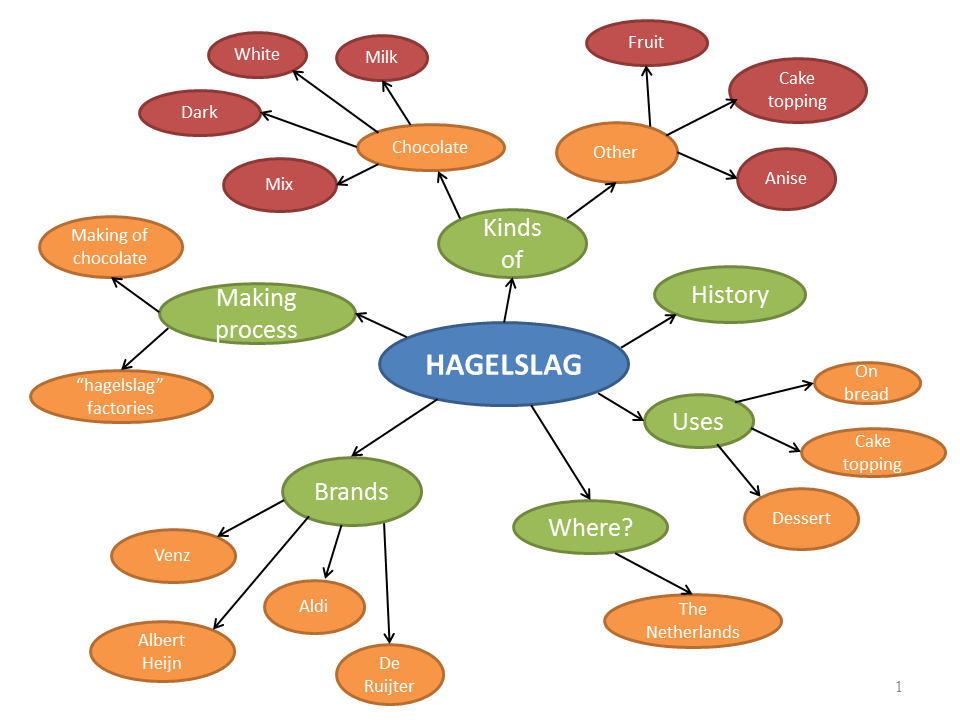I’m standing in the supermarket. It is a rather large supermarket, but luckily I only have to be in one department. So, here I am, standing in front of a pile of boxes of chocolate sprinkles (“hagelslag”, in its Dutch term). The place has huge departments and lots of choice. I recently got hired to do research on boxes of hagelslag. Which makes me very excited, because I love hagelslag! I look at the shelves, no, I gaze in awe at the shelves, where piles and piles of hagelslag are exposed, hundreds and thousands of different kinds. Since I know nothing about hagelslag yet, I have to get a grip on the field I’m studying. I have to choose the right boxes of hagelslag to start with, otherwise it will take me ages to find some information. After all, I’m getting paid now to choose the appropriate boxes of hagelslag for my research. Where to start??
This is pretty much how I felt when I started my PhD two months ago. It’s how I feel some of the time even now. I’m grasping at so much literature on educational research, I often don’t know where to start. I jump from reading one article about design-based learning in chemistry to the next article about PCK (pedagogical content knowledge; a term I did not know to exist up until two months ago). And I feel the pressure too, because for the first time in my life I am actually being paid to do what I have been trained for during five years at University: research. And it just has to go well.
So, how to deal with the stress of choosing the right articles to read, the right path to follow in your research…? As I’m struggling to find out along the way, here are some useful tips for starting researchers, including myself.
DIY: Six steps to help start your research project stress-free
Subject: “hagelslag”
- Make a mindmap
By making a mindmap, you can distinguish between main and sub-categories. You can involve these in your planning: ‘Today, I’m going to read all about the Brands-category of hagelslag’. Hence the next tip:
- Make a planning
How many days will you spend reading on one topic? Plan your reading sessions, otherwise you may realize at the end of the week you have spent four days of valuable reading time on the use of apple-flavoured hagelslag in desserts. Way too specific if all you want to reach for is getting a grip on the whole field at a global scale.
- Talk to other PhD’s
You most likely do not have to invent the wheel all by yourself again. Ask other PhD’s how they started their reading, and maybe ask them for helpful literature they considered to be useful in your field of research.
- Consult your supervisors
They already have lots of knowledge in the field and can help you find a starting point. They could suggest useful papers and books, and when you do not understand certain material, they will probably be happy to discuss the content with you.
- Take breaks
How exciting reading may be, even if you love hagelslag, if you read non-stop for several weeks you will be exhausted (trust me). Plan other activities in between reading, or watch a YouTube video about the subject you want to learn more about. (Like the informative videos of khanacademymedicine).
- Remember: you have 4 more years
I tend to forget this. You cannot read everything you need to know about hagelslag in your first month. You cannot know yet what your research is going to look like in detail. Have patience, breathe: there is still time.
I will be on the lookout for more tips for starting professionals, figuring them out myself as I go along the way. Expect another blog when I have ![]() had time to discover some more about the wonderful world of educational research, or when I have made mistakes/successes (and learnt from them).
had time to discover some more about the wonderful world of educational research, or when I have made mistakes/successes (and learnt from them).
Got any more thoughts or advice on the Hagelslag Dilemma? Please comment below!










This is the ideal answer. Evernoye should read this
The story is recognizable concerning the process in my Ph.D. project. I have long been engaged in a kind of master plan, building with all those parcels hagelslag. This process has finally resulted in a beautiful design of sub-studies. Furthermore, it was also very good that my ICLON supervisor said, ‘I advise you now to concentrate on empirical research. Finally, the hagelslag will scatter causing several, new patterns. Then, you probably need some new theory again’. And that prediction was true.
My initial model based on theory was special, but on the basis of the interview data, the renewed model was even more special. My Ph.D. research focuses on academic identity. Analyzing the empirical data revealed that engagement in two academic roles (new researcher role and current teacher role) brought to maturity more than two role identities, namely six academic identities. There appeared to be some sort of ‘miraculous’ identity multiplication. The article, “Identities or academics at new universities in transition: Balancing the benefits and Tensions of the academic profession’ is recently taken into review.
So my advice is, after sorting the parcels, and thinking about your approach, give the chocolate sprinkles the chance to go their own way after scattering. This is my research the grounded theory approach.
vriendelijke groet/best wishes, Monica.
Drs. Monica A. van Winkel | Senior Lecturer HRM, HRD, M & O and qualitative research I HAN UAS The Netherlands |
PhD Candidate at ICLON – Leiden University |
How neat! Is it really this silemp? You make it look easy.